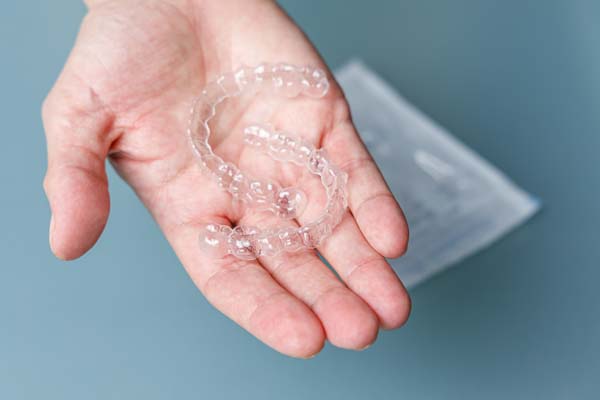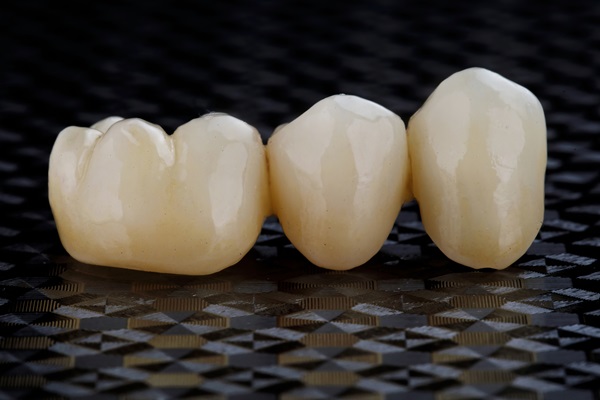Does Invisalign Really Work Without Causing Tooth Problems?

Are you thinking about getting Invisalign and wondering: Does Invisalign really work? Invisalign® is one of the most popular forms of clear aligner treatment. However, determining whether or not Invisalign really works is important if you are considering treatment. A common question is whether Invisalign causes any tooth problems, and we seek to answer that question in this review.
Determining whether Invisalign really works
The first step to determining whether Invisalign is right for you is to learn more about the treatment process and potential risks involved. The following is a complete review of whether or not Invisalign really works, including insights into who should consider Invisalign, potential risks, and how to prevent complications during treatment.
A review of Invisalign treatment
Invisalign uses clear aligners, which are transparent trays that pull teeth into ideal alignment. General dentists and orthodontists are qualified to carry out the treatment process. The process involves determining whether they are the best option for the patient, customizing the clear aligners, wearing the aligners for 20 to 22 hours each day (they are removable), and wearing a retainer after treatment is over to keep a straight smile in the long term.
Who should consider Invisalign?
Anyone who is not happy with how they look while smiling due to a misalignment of their teeth or jaw should consider orthodontic treatment. However, Invisalign is typically most appropriate for patients who have minor to moderate misalignments, and it may not be the best option for fixing more severe concerns. Generally speaking, Invisalign can address these issues:
- Teeth that are crooked
- Gaps between teeth
- Teeth that are overcrowded
- Jaw misalignments (i.e. underbite)
During a consultation visit with an Invisalign provider, the dental professional can explain the pros and cons of treatment and help you make an informed decision as to whether to start the Invisalign treatment process.
Potential risks with Invisalign
There are typically no serious threats to a patient’s dental health during Invisalign treatment, especially if they follow the treatment plan properly and protect teeth through good oral hygiene. However, if the patient fails to keep their clear aligners cleaned and rinsed off, then food particles and bacteria can get trapped between teeth and the aligners, which can increase the risk of tooth stains, dental cavities, and other oral health concerns.
How to prevent tooth problems during Invisalign treatment
Oral health concerns can develop if the patient does not care for their teeth properly through good oral hygiene. In addition to keeping the aligners clean, patients should also follow a consistent and thorough brushing and mouthwash routine, along with reducing the consumption of foods that may contribute to poor oral health, such as coffee, tea, soft drinks, and foods that are high in sugar.
Find out more about Invisalign
Our team helps patients through the entire Invisalign treatment process, from the initial consultation to ensuring the patient can keep their smile straight in the long term through aftercare and by wearing a retainer. If you would like to learn more about whether Invisalign really works, contact us today to arrange an initial visit.
Request an appointment here: https://ismiledentalspa.com or call iSmile Dental Spa at (916) 241-4191 for an appointment in our Carmichael office.
Check out what others are saying about our dental services on Yelp: Does Invisalign Really Work in Carmichael, CA.
Recent Posts
Many patients wonder about the differences between an Invisalign® dentist and an orthodontist when considering Invisalign treatment. While both professionals can offer Invisalign services, there are important distinctions between the two that may affect the treatment process. Understanding these differences is crucial for selecting the right provider to ensure optimal results and a smooth experience.The…
Dental bridges replace missing teeth, restoring smile appearance and bite function. They are noninvasive tooth replacements that rely on the surrounding teeth or dental implants for support. A general or cosmetic dentist will create a dental bridge custom-fit to the patient’s smile, ensuring a natural-looking restoration and optimal oral health.Dental bridges are named for the…
For dental emergencies, people can go to an emergency dentist or an emergency room. However, several things should be considered before deciding where to seek medical help. Just like any other medical emergency, dental emergencies also require different levels of care. This depends on their severity. The ideal place to go for treatment when you…
Dental veneers and dentures are among the most common treatments that dental providers use to restore patients' smiles. Veneers are thin shells that fit over natural teeth to improve their appearance, while dentures replace missing teeth and restore oral function. Although these treatments serve different purposes, they can sometimes work in combination through a smile…


